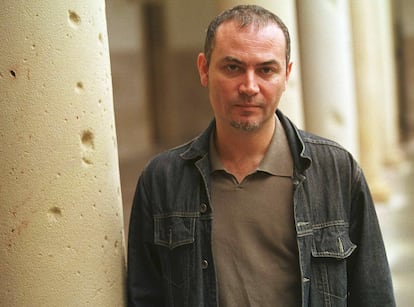Xuan Bello, an Asturian writer with a universal vocation, dies at 60.

Asturian writer Xuan Bello died unexpectedly this Tuesday at the age of 60, according to the newspaper La Nueva España . Born in 1965 in the town of Paniceiros, in the municipality of Tineo, Bello was a storyteller and poet, one of the great names in Asturian literature (and in Asturian) of this century. His Historia Universal de Paniceiros (Universal History of Paniceiros ) , from 2002, a beautiful collection of short texts, intimate, poetic, and reflective, between memory and fantastical fable, was the work that gave him the greatest projection on the Spanish scene. In it, he made it clear that, despite starting from local sources, in this case from his small, great language and his small, great village of 42 houses, perched in the mountains, he was capable of connecting with universal culture.
“He was the standard-bearer of his generation, the one that, in the early 1980s, set out to dignify Asturian-language literature and succeeded, demonstrating that those old words were still valid for contemporary expression,” says writer Miguel Barrero, director of the Semana Negra de Xixón , where Bello had participated just a few weeks earlier. He is referring to the second generation of the Surdimientu (Resurgence in Spanish), the movement to recover the Asturian language that was launched after Franco's death and decades of disdain. “He was one of those writers who make the country. There is an Asturias before and another after Xuan Bello. But he was also one of the greats of Spanish literature,” recalls critic and poet José Luis García Martín, in whose Oviedo gatherings many of the authors of that generation and many others grew up and bonded.
At that ranch, he shared time and writing with other writers, such as Berta Piñán and Antón García, who, in effect, revived the Asturian language, traditionally associated with rural life, to apply it to contemporary urban life. They focused more on literary creation than on political activism, unlike their predecessors. "I was tired of hearing that we spoke badly, and I decided to begin a cultural process of dignification," Bello said at the Madrid presentation of his most famous work in 2002.

“It's very difficult for me to think of Xuan as a writer now, because he was one of my best friends, and the way he understood friendship, it's as if a brother had passed away,” said an emotional writer Martín López-Vega, who will soon become director of the Instituto Cervantes in Manchester. “It was precisely that idea of friendship that he had with readers, and that's what made him such a special writer. He would entangle you in his world, he would invent… He was capable of making everything that crossed his mind, everything he read, everything he was told, all connect. Few writers can be said to have built a world… and in this case, the world he built was his own village,” added López-Vega, referring to Paniceiros.
If Historia… , said Bello, was “a treatise on childhood” in which he included oral histories, childhood memories, readings, poems and stories; Los cuarteles de la memoria (which was continued by Historia... ) “was a treatise on adolescence and early youth”. While in La historia oculta, the end of that trilogy, there was “ a reflection from maturity”, in his own words. Bello had started in literature at a very young age. In 1982, at the age of 16, he published his first book of poems, Nel cuartu mariellu . This was followed by El llibru de les ashes (1988), Los nomes de la tierra (1991), El llibru vieyu and Los Caminos Secretos (1996). In 1999 he published a bilingual anthology (Asturian-Spanish) of his poetry entitled La Vida Perdida . And in 2009 his poetry compilation, Ambos Mundos, was released. Poetry 1988-2009. His poetry is elegiac in tone, with a special fondness for the passage of time, to which he referred: “The past is a foreign country, with barbaric customs that we barely understand; an uncomfortable place.”
The President of the Principality, Adrián Barbón , has published this post on the social network X (originally in Asturian): “Still stunned by the death of Xuan Bello, I barely have the strength to write a few words that are not consolation, but tears. Asturias loses one of its best sons, a lover of its languages, culture and traditions. An exceptional writer and an extraordinary person. We love you.”
In addition to his literary work, Bello worked as a columnist for the Asturian press (he edited the Asturian-language weekly Les Noticies ), was a member of the Academia de la Llingua Asturiana (from which he received the Premiu Nacional), and conducted a series of audiovisual interviews, entitled Clave de Fondo , with leading figures in culture. This interview took place at the Niemeyer Centre in Avilés and was broadcast on the Asturian regional television channel, TPA. One of his latest projects was to launch the La Favorita festival in Luarca with Pablo Fidalgo Lareo.
Regarding the use of Asturian in his books and in his life, he had said: “This language is being deliberately allowed to die. I speak Spanish, and no one can take that away from me. But I want to speak Asturian to my daughter and my grandfather, and they shouldn't take that away from me either. When you love your language, you don't just love your own language, you love all the others. In reality, there's a lot of passion for the world.”
EL PAÍS





